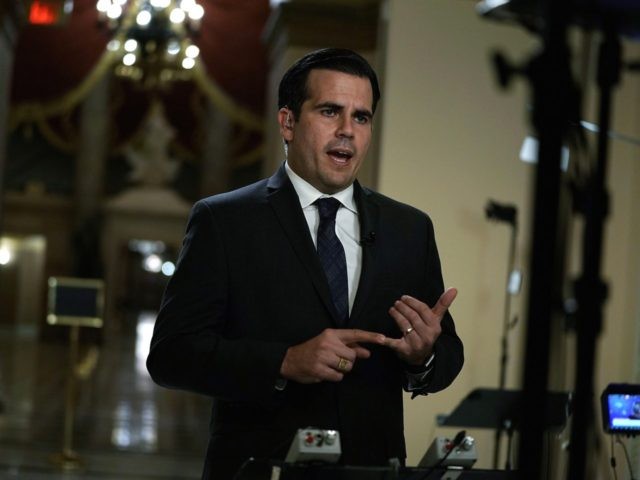Puerto Rico Governor Ricardo Rosselló announced Tuesday that he would sign an executive order revising the official death toll from last year’s Hurricane Maria to 2,975, based on numbers from a George Washington University study released earlier that day.
The previous official estimate of 64 had long been suspected to be an undercount. However, the new number is an estimate of “excess mortality” over a period of six months. It does not establish the cause of death for people now presumed to be victims.
The mainstream media have reported the 2,975 estimate as if it were an actual count. The GWU study itself, however, indicates: “Total excess mortality post-hurricane using the migration displacement scenario is estimated to be 2,975 (95% CI: 2,658-3,290) for the total study period of September 2017 through February 2018″ (original emphasis). The acronym “CI” stands for “confidence interval,” and indicates a statistical likelihood of 95% that the estimate falls within that range — according to the method used.
The estimate was calculated by creating a statistical model that estimated the number of deaths that would have been expected to occur over the six-month period if the hurricane had never happened. Researchers then took the actual number of reported deaths, subtracted the estimate of the number of expected deaths, and arrived at an estimate of the number of deaths due to the hurricane.
As the study puts it: “To estimate excess mortality associated with Hurricane María, it was necessary to develop counterfactual mortality estimates, or estimates of what mortality would have been expected to be had the disaster not occurred.”
The mainstream media pounced on the report, apparently in the hope of laying blame for the deaths at the feet of the Trump administration. Wolf Blitzer of CNN drove the point home, reminding viewers that this week marked the 13th anniversary of Hurricane Katrina in the United States in 2005, during which federal agencies were perceived as ineffective. The resulting political damage to the Bush administration contributed significantly to Democrats’ subsequent victory in the midterm elections of 2006.
In June, a Harvard study claimed that 4,645 people had died in Hurricane Maria, leaving even the liberal Washington Post to question its methodology. The Post warned:
There’s a problem: This is not a verified number, unlike body counts in wars. The Harvard study offers only an estimate – a midpoint along a broad range of possibilities. It is not based on death records, only estimates of deaths from people who were interviewed in a survey.
In effect, the researchers took one number – 15 deaths identified from a survey of 3,299 households – and extrapolated that to come up with 4,645 deaths across the island.
On Tuesday, the Post reported similar warnings about the GWU study:
The GWU report has a limitation, in that it does not specify how people died. It is purely a statistical study based on official death records and expected mortality rates. The researchers did not go household to household to interview survivors; they said they hope to conduct a more detailed investigation in the future if funding permits.
The government of Puerto Rico commissioned the GWU study, and Governor Rosselló was keen to accept its findings, partly to deflect criticism of his administration’s handling of the hurricane and its aftermath. The U.S. territory — already in financial shambles before the hurricane, and struggling to maintain its infrastructure — has struggled to rebuild since the disaster.
Joel B. Pollak is Senior Editor-at-Large at Breitbart News. He is a winner of the 2018 Robert Novak Journalism Alumni Fellowship. He is also the co-author of How Trump Won: The Inside Story of a Revolution, which is available from Regnery. Follow him on Twitter at @joelpollak.

COMMENTS
Please let us know if you're having issues with commenting.